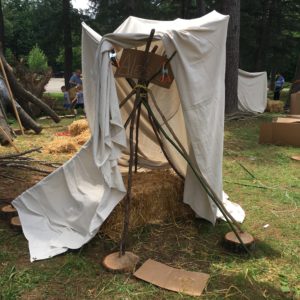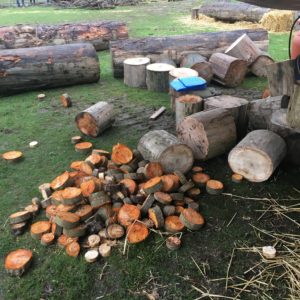(PS3): Loose Parts and Non-prescriptive Materials (2 hours ECE-TRIS credit)
Training Description
Loose parts and non-prescriptive materials provide  opportunities for children to play unencumbered by expectations that are often telegraphed by materials and play equipment. Loose parts support creative problem solving, cooperative play, fine motor skills and social interaction. Properly managed environments that provide a rich pallet of loose parts minimize maintenance challenges while significantly improving healthy child development. Through media presentations, small group activities and large group conversations this workshop provides participants with knowledge about loose parts play and the skills to provide and manage the play environment.
opportunities for children to play unencumbered by expectations that are often telegraphed by materials and play equipment. Loose parts support creative problem solving, cooperative play, fine motor skills and social interaction. Properly managed environments that provide a rich pallet of loose parts minimize maintenance challenges while significantly improving healthy child development. Through media presentations, small group activities and large group conversations this workshop provides participants with knowledge about loose parts play and the skills to provide and manage the play environment.
Training Topics
- How do “loose parts” differ from “fixed equipment” in the outdoor play environment
- How do “prescriptive” play materials differ from “non-prescriptive” play materials
- How children benefit from play environments with loose parts and non prescriptive materials
- Planning for loose parts play

- Identifying and acquiring appropriate materials
- Storing, maintaining and managing loose parts
- Programming loose parts play into your program
- Play forensics – observing how children play with loose parts
- Documentation – How to capture and share loose parts play experiences in order to improve your program
Training Objectives
Participants will:
- Identify and describe play terms: loose parts, fixed equipment, prescriptive play materials, non-prescriptive play materials.
- List ten loose parts play materials that are readily available and affordable
- Articulate five scientifically supported reasons why loose parts support healthy child development
- Work in small teams to put together a simple plan to begin incorporating loose parts into existing programs
- Play Forensics - Use photographs of children engaged in loose parts play to analyze and describe child development benefits and challenges
- Propose two simple explorations/observations that will help teachers define how loose parts may improve existing play opportunities
- Identify three online resources that support further learning about loose parts play
How does this training relate to early childhood education?
Research supports the inclusion of loose parts play materials in outdoor play environments to improve healthy child development, but many childcare providers consider loose parts to be logistically difficult. This workshop provides specific strategies that increase the developmental benefits of play for the child while minimizing the challenges associated with loose parts for teachers and administrators.
For more information on costs and scheduling click here.
